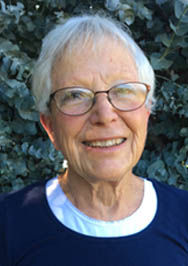What do you do with 200 pounds of winter squash? Some options: build a wall to keep out rising streams or overflowing rain gutters; bake lots of pies and sell them at the farmers’ market; store them in a dry, cool cellar for “earthquake supplies.”
Though these suggestions contain some promise, each has problems. The first (the wall) will morph into a mess once the sun comes out as well as the APB enticing every rodent in town to gather ‘round the food mound. The second requires locating a certified kitchen (certified by the public health department) or a license to have a cottage industry on your property followed by lots of dough, ovens and good, supportive shoes. Then, hours of standing at sparsely attended farmers’ markets whose customers will tire of having one choice of pie – pumpkin or squash, which tastes remarkably the same.
The third option, storing, is fraught with the unknown. What effect will temperature, high or low, have on the squash? Who’s that nibbling on my four pound Butternut? Whoever it is, he’s smart enough not to break a tooth on the spaghetti squash’s hard shell.
When I am at winter markets, I marvel at the array of cabbage family that adorn vendors’ tables. There are also root vegetables and dried beans – many at Tierra Vegetable’s stand. Twelve vendors brave the weather each Wednesday, many more on Saturday, at Luther Burbank Center’s parking lot. Representing families making their living by farming in our neighborhood, they are certainly deserving of our support if we care about agriculture in this county.
My neighbor at Wednesday market, Damon, neatly lines up rows of creamy yellow Delicata squash, next to lemon-yellow spaghetti squash. They are as organized as battalions awaiting orders to march. After four and one half hours, he places the squash troops back into his truck. He has sold perhaps 5-10 in those hours?
I have sold 2-3 in the same time frame so, for the good of the whole, I am going to suggest what else you can do with squash. Eat them.
Winter squash is a fantastic addition to any stir fry. Remove their skin and cut them into 3/4 inch cubes. They cook quickly with other vegetables in a bit of olive oil. Those same cubes can be added to any vegetable or chicken soup for thickening. If you are watching your weight or blood pressure, spaghetti squash is a delightful way to enjoy spaghetti sauce and parmesan or asiago cheese, without problematic pasta.
If you’ve made Mary Villemaire’s and Sunset’s baked tomato sauce last summer and saved it in the freezer for a rainy day, the time has come. Speaking of Mary and the Villemaires of Bon Terre Farm … we were sharing a winter meal here at the farm last week.
Like many of you, we are working indoors instead of sloshing around in the mud. We clean shelves and paint. We clear and organize. Sarah inquired about a lovely set of crystal goblets never used, dating back to my mother’s childhood in San Francisco. I remember my mom setting them on the table at Christmas and Thanksgiving when I was a child but I had failed to do the same for my family.
“Why don’t we get them out for the Villemaire dinner?”
Why not? What good were they never seeing the light of day?
So, that resulted in stories about family treasures and Mary shared a tale about the family goblets this Christmas Eve family dinner at the V’s.
Mary had set six of their fine goblets onto the dining room table. Before dinner, Bert, who converses with his hands as well as his voice, gestured and took down goblet number one. Post dinner clean-up, while daughter Elise was washing goblet number two it cracked. Sometime later, when four goblets were washed, dried, awaiting a return to the shelf, son Craig cut his hand on an open cat food can. He quickly reached for the paper towels to staunch the blood. With an intensified sense of purpose, he pulled the towels toward him, whacking three of the four goblets over, breaking them.
Later, after their children had gone home, Mary took the one remaining goblet and carefully placed it into the cupboard. “I should throw it into the fireplace and watch it smash,” she thought, just like a Russian movie.
Renee Kiff weeds and writes at her family farm in Alexander Valley.
47.6
F
Healdsburg
April 22, 2025









